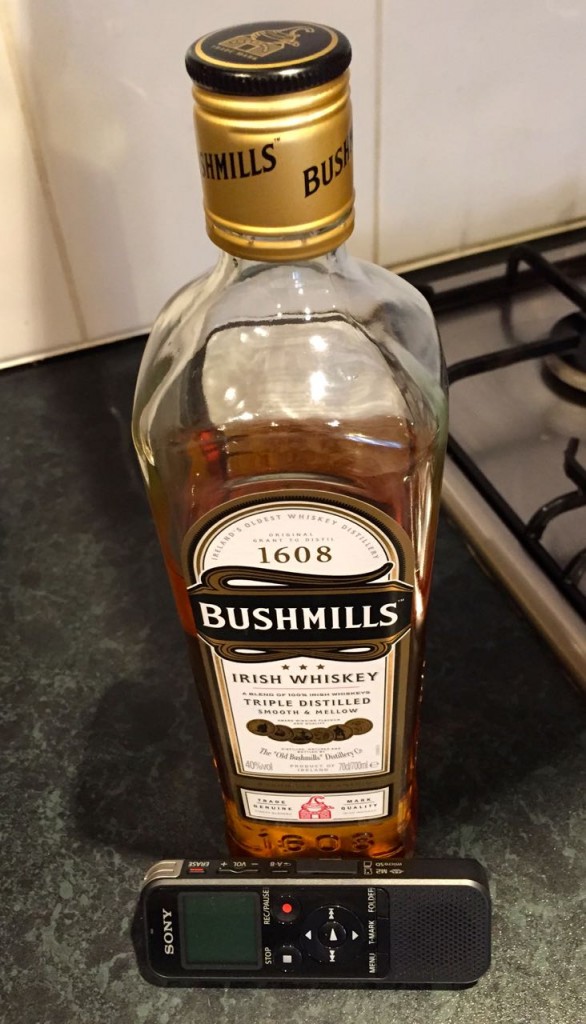… in that what gets said when the recorder is off stays off the recorder. And hence off the record.
I was thinking about that today after finishing an interview with a contact I’ve talked to before. He’s a smart, energetic, friendly, and open man who was at one time a fairly highly placed member of the IRA but has since left the fold. His distancing from the mainstream Republican movement was gradual but ultimately total, and his political work is now limited primarily to advocating on behalf of Republican prisoners and the occasional public criticism of Sinn Fein and its leadership. The Republican world is a small one and he remains well connected. In short he is a great source of information and insight, generous with his time, gracious, and someone I am lucky to know.

My on-the-record interview with him went about 90 minutes or so, and when we were done and I shut the recorder off, he brought out the bottle of Irish whiskey and the conversation became more informal. Informal, but no less informative. We talked about American politics (he wanted to know what I thought of Ron Paul), our respective countries’ gun cultures, racism, global capitalism, Aldous Huxley, George Orwell, state surveillance, enhanced interrogation, and more.
We also talked about the changes in the operational and organizational dynamics of the IRA that took place between the 1970s and the 1990s, what it was like to fight the war within the prisons, how to smuggle contraband into the prisons (everything from fountain pens and tobacco to radios), personalities within the movement and how they got along (or didn’t) with each other, and so on.
None of what we talked about after the recorder went off can I use in my writing, not that anything that was said was out of step with our on-the-record conversation or named any individuals in any way that is not already part of the public record. But it does have the effect of broadening my knowledge and understanding, and the overall tenor of our conversation will work its way in to my professional output, whether on the printed page or in the classroom.
I find that these conversations are much of the reason that I come here. At this point, you could argue that field work on Northern Ireland is not really necessary. The ceasefires have held for nearly 20 years (more or less), the peace process has been slowly but steadily transforming into a real peace for 17 or 18 years. Seemingly endless reams of academic papers and books have been written and published, and my own modest contribution, when it comes, will only incrementally add to that. I’m under no illusions that my scholarly output will reshape the field.
And yet there is a fragility to the peace that I would not appreciate if I didn’t come here and talk to people like those I talked to today. There is an ordinariness to the people who did extraordinary things here (both good and bad) that I would not appreciate if I didn’t come and talk to them. There is a popular narrative about the type of people who become terrorists that I would not be able to challenge for my students if I didn’t come here and meet them and hear their stories.
So while what happens when the recorder turns off stays off the record, it doesn’t stay out of my mind or fail to inform my perspective. And for my money that makes me both a better scholar and a better teacher.